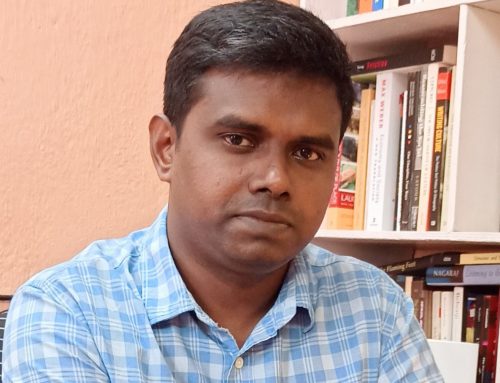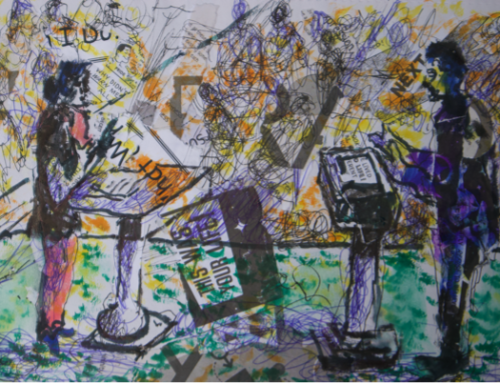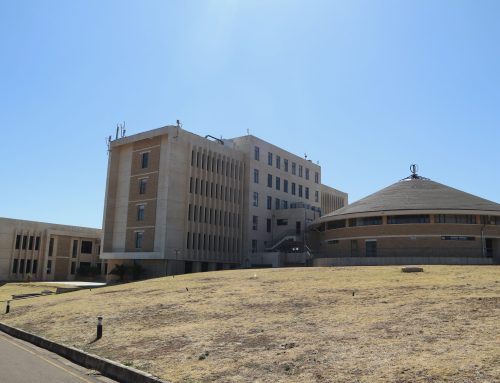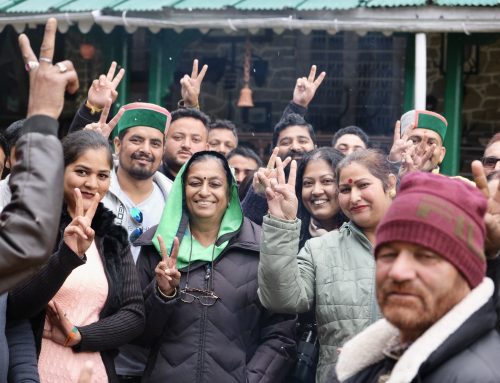Professor Cristiane Brum Bernardes reflects on the role that digital platforms and social media have played in mediating the work of the Brazilian legislature in the context of the COVID-19 pandemic.
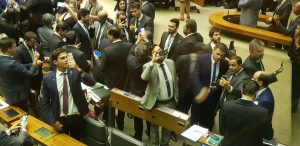
The atypical situation the world faced in 2020, during the Covid-19 crisis, brought to the fore various strategies deployed by political institutions who sought to stay operational in the face of self-isolation mandates and stay-at-home orders. The key tactic adopted by parliaments around the world in response to the pandemic was the digitalization of procedures, meetings and legislative activities.
Brazilian legislatures, specifically the Chamber of Deputies and the Senate, were the first to implement remote debates in March 2020. Just a few days after the World Health Organization declared the pandemic, the Senate and the Chamber of Deputies started remote meetings, which included representative votes through a specially designed mobile application.
For academics and practitioners interested in Political Communication it is not a surprise that the Brazilian Parliament was so pioneering in its response to the crisis. Several studies in the last decade have shown the level of complexity and sophistication of the digital tools adopted by Brazilian legislatures at both the federal (Bernardes & Leston-Bandeira, 2016; Barros, Bernardes & Rodrigues, 2018; 2019; Faria & Rehbein, 2018; Rodrigues, Barros & Bernardes, 2019),and state levels (Bernardes, 2020; Mitozo, 2020).
The digitalization of politics in the last twenty years is not unexpected or new, and emphasises the centrality of the internet, especially social media platforms, in processes of political engagement and communication between politicians and citizens. Brazilian legislatures are, in a way, just a current clear example of how processes of Audience Democracy (Manin, 1997; 2013), or the plebiscite of the audience (Urbinati, 2006; 2013), combine with the “personalization of politics” (Bennet, 2012).
What is extremely interesting in the Brazilian case, however, is the intensity of this process during 2020, when so many of the meetings of the Brazilian national legislatures were online and the representatives – also in state and local spheres – took to social media to engage with society. Looking at the importance of social media for the Brazilian population, as shown by Digital 2020 July Global Statshot (2020), it is no surprise that representatives are using it so extensively.
It is useful to remember the centrality of social media in the last two Brazilian electoral campaigns in 2018 and 2020 (Cesarino, 2020), and the fact that many of the parliamentarians elected in these elections were not professional politicians, but digital influencers who become candidates and won elections after their involvement with demonstrations and mobilizations for the impeachment of Dilma Rousseff in 2016. An extreme example of this is the PSL caucus, the second biggest party in the Chamber in 2018, and one in which almost half of its 52 federal deputies were elected for the first time that year.
Not by chance then, at the beginning of this legislative session, in 2019, a photograph was taken showing many deputies using their mobiles on the floor of the chamber to take videos, live streams and pictures, and that this picture has led Brazilian journalists to brand the group the so-called “Selfie Caucus”. Some of these deputies have been those most active on social media during the pandemic.
Of course, the process is not entirely safe or without challenges for both citizens and parliamentarians. One major issue from the perspective of citizens is the digital gap still present in Brazilian society. The pandemic has further deepened these exclusions, whether they are a consequence of the economic crisis which has made tech infrastructures more expensive, or as an outcome of generational and cognitive inequalities, heightened by the difficulties people face accessing digital skills training.
Another important problem faced by social organizations consists of a lack of contact with representatives due to the physical closure of legislative houses. Lobbies and interest groups have had fewer opportunities to directly contact parliamentarians and be heard by them during the debates. Without these face-to-face interactions inside the buildings of the Congress, the pressure exerted on representatives was seen to be diminished.
To overcome these challenges, social media has become the favourite channel through which to broadcast political content addressed to citizens and social organizations. Profiles on platforms complement the political discourse, both of politicians and institutions, that circulates on television and radio. These tools provide political actors’ opinions about those facts and issues under dispute in the public sphere, functioning as channels to disseminate data and political information as well as to construct political identities. They also provide a way in which citizens can be seen and heard – however partially – by representatives.
For parliamentarians, however, the problems presented by social media arise from two situations: their training in and personal skills with the use of digital tools, and the extreme polarization that social media platforms can stimulate. The first problem is being tackled in various forms, including formal training and the recruitment of specialists to work in parliamentarians’ offices. The second issue is more complex. Recently, a digital communications advisor shared with me their concerns about how a hate campaign was being mobilized against his deputy through social media. Apparently, bots and fake news were being mobilized to destroy the reputation of this parliamentarian due to his opinions on social isolation and his criticism of the government’s vaccine campaign in Brazil.
The Brazilian case can, therefore, be successfully included in a description of political communication as a “permanent connection” with society (Larsson, 2016). The logic of social media demands the constant engagement of users with platforms, and is entangled with the logic of the “permanent campaign”, explored by political scientists in relation to David Mayhew’s (2004 [1974]) notion of “electoral connection” as a means of explaining the activities of representatives in the U.S. Congress. In an Anthropological perspective, the “time of politics” (Palmeira, 1996) is extended beyond electoral campaigns.
As part of the Training Centre (CEFOR) of Brazilian Chamber of Deputies research team and a researcher on the project “A Global Comparative Ethnography of Parliaments, Politicians and People: representation, relationships and ruptures”, I include myself in those who are paying close attention to changes in political communication and the relationship between political presence and social media. The research project I coordinate is called “Brazilian political actors’ strategies for making connections and producing political identities” and is interested in mapping and explaining how political relations and forms of representation are reframed under the emerging practices of digital democracy.
Recently, we conducted a survey with political advisors to understand the everyday social media practices of Brazilian federal deputies (Barros et al, 2020). Our initial findings showed that representatives are developing a mixed strategy for political communication, engaging with various social media simultaneously. They use the most popular platforms to target specific audiences with tailored content, with 65% of informants saying parliamentary offices produced content, language and multimedia material adapted to each platform. Facebook, Instagram, YouTube, Twitter, WhatsApp, Telegram and LinkedIn are included in the study. Customised content is prioritised for Facebook, Instagram and YouTube, but WhatsApp, Twitter, LinkedIn and Telegram also received attention from representatives.
The main goal of using social media for four of the five offices surveyed was to inform the public about what representatives were doing. In this sense, social media served both to reinforce the identity of the representative, and publicly broadcast their personal position on the key topics under discussion in parliament. A third of respondents also cited the work of reporting on the political issues of states and municipalities as an important task which can be mediated by social media. Social media is not, however, seen, as an educational space for the political formation of citizens, with one third of informants believing that this is the least relevant objective when it comes to the daily use of platforms.
It is worth noting that Brazil presents some peculiarities regarding social media usage. Unlike elsewhere, in Brazil WhatsApp is not only widely used, but the preferred platform for large segments of the population, not only because of its inclusion in basic mobile phone plans, but also as an easy, although not always credible, source of political information. Parliamentarians seem all too aware of this preference, with WhatsApp being the main tool for interaction with social groups, supporters, journalists, state and municipal political actors and social movements. Its private character means that the platform is used for processes of mobilization, expressions of support or criticism, holding political actors to account, and maintaining strong ties with the political base in ways that are often difficult to sustain on other social media.
The survey data are still being analyzed, but what is already clear is that Brazilian federal deputies’ strategies of complementarity and crossing content in social media posts can be understood as an expression, in a time of self-isolation precipitated by COVID-19, of the need of both politicians and citizens to engage through digital platforms.
It is clear that we still have a long way to go to completely understand this process or determine whether it will become a permanent feature of Brazilian politics, or will fade as the pandemic draws to a close. Further research should include qualitative analysis of parliamentarians’ social media posts, an ethnography of political spaces of public debate, digital or otherwise, and interviews with key informants about how these processes of political communication and engagement are managed.
References
Barros, A.T. (2015) Política informacional partidária: como os partidos políticos brasileiros usam a internet para a comunicação com públicos segmentados do eleitorado. C-Legenda, (32):68-82.
Barros, A. T.; Bernardes, C. B. & Rodrigues, M. (2019) Políticas Partidárias de Confrontação na Esfera Virtual: Análise dos Perfis das Lideranças do PT e do PSDB no Facebook. In: Karoline Coelho de Andrade e Souza. (Org.). Utopias e Distopias da Ciência Política. 1ed.Ponta Grossa/PR: Atena Editora, p. 164-176.
Barros, A. T.; Bernardes, C. B.; Rodrigues, M. R. (2018) Brazilian Parliament and digital engagement. In: Cristiane Brum Bernardes; Cristina Leston-Bandeira; Ricardo de João Braga. (Org.). The Legislature of Brazil. An analysis of its policy-making and public engagement roles. 1ed.Oxon/UK: Routledge, p. 96-114.
Barros, A. T.; Bernardes, C. B.; Faria, C. F. S.; Busanello, E. (2020) Mandatos digitais e sua gestão: as estratégias de uso das mídias sociais pelos deputados federais. In: III Congresso do Instituto Nacional de Ciência e Tecnologia em Democracia Digital, Salvador. Anais do III Congresso do INCT-DD.
Bennett, W.L. (2012). The personalization of politics: Political Identity, Social Media, and Changing Patterns of Participation. The Annals of the American Academy of Political and Social Science, 644:20-39.
Bernardes, C. B. (2020) Uso do Twitter para engajamento político: análise dos perfis das assembleias legislativas da Região Sudeste. Revista Compolitica, 10(3):5-48.
Bernardes, C. B. & Leston-Bandeira, C. (2016) Information vs Engagement in parliamentary websites – a case study of Brazil and the UK. Rev. Sociol. Polit., Curitiba, 24(59):91-107.
Cesarino, L. (2020). Como vencer uma eleição sem sair de casa: a ascensão do populismo digital no Brasil. Internet & Sociedade, 1(1):91-120.
Faria, C. & Rehbein, M. (2018) Open parliament policy applied to the Brazilian Chamber of Deputies. In: Cristiane Brum Bernardes; Cristina Leston-Bandeira; Ricardo de João Braga. (Org.). The Legislature of Brazil. An analysis of its policy-making and public engagement roles. 1ed.Oxon/UK: Routledge, p. 115-131.
Digital 2020 July Global Statshot. (2020) Available at: https://datareportal.com/reports/digital-2020-july-global-statshot
Larsson, A.O. (2016). Online, all the time? A quantitative assessment of the permanent campaign on Facebook. New Media & Society, 18(2):274-292.
Manin, B. (2013). A democracia do público reconsiderada. Novos estudos CEBRAP, (97):115-127.
Manin, B. (1997). The principles of representative government. Cambridge University Press.
Mayhew, D. (2004). Congress. The electoral connection. 2nd edition. New Haven/US: Yale University Press.
Mitozo, I. (2020). A utilização de sistemas deliberativos remotos pelas assembleias legislativas brasileiras durante a pandemia de Covid-19: características e prospectos. Rev. Leg. Pr., Curitiba, 4 :9-24.
Palmeira, M. (1996). Política, facções e voto. In: Palmeira, M., & Goldman, M. Antropologia, voto e representação política. Rio de Janeiro: Contra Capa Livraria, 41-56.
Rodrigues, M. R.; Barros, A. T. & Bernardes, C. B. (2019) Faces partidárias na esfera virtual: a atuação política das lideranças da Câmara dos Deputados no Facebook. In: Giovana Perlin; Manoel Leonardo Santos. (Org.). Presidencialismo de coalizão em movimento. 1ed.Brasília: Edições Câmara, p. 315-351.
Urbinati, N. (2006) O que torna a representação democrática? Lua Nova. São Paulo, 67:191-228.
Urbinati, N. (2013) Da democracia dos partidos ao plebiscito da audience. Lua Nova, São Paulo, 89: 85-105.
Cristiane has a PhD in Political Science, she is a professor at Master in Legislatures at the Training Centre (CEFOR) of the Brazilian Chamber of Deputies. She is research associate at the Department of Anthropology and Sociology (SOAS University of London) and Centre for Democratic Engagement (University of Leeds), member of Global Research Network on Parliaments and People, and lead Brazilian researcher on the project “A Global Comparative Ethnography of Parliaments, Politicians and People: representation, relationships and ruptures”. E-mail: cb111@soas.ac.uk

